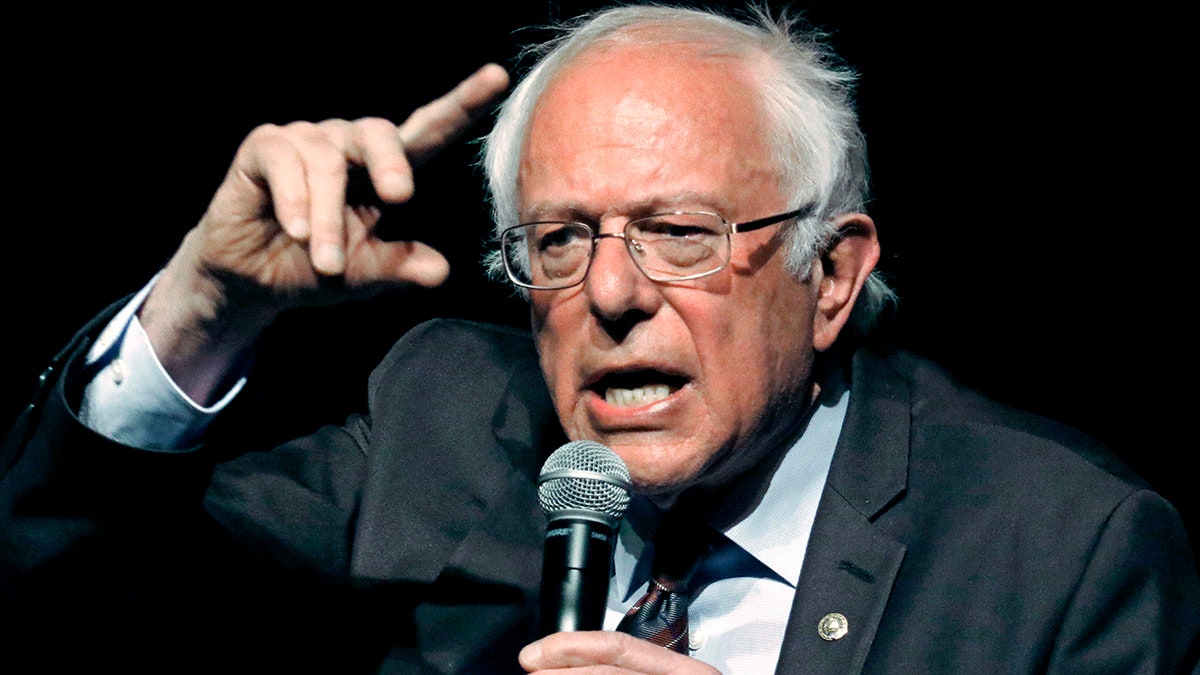
Sen. Bernie Sanders said Medicare-for-all is a "cost effective" program. (AP)
The so-called Medicare for All plan on which 60 Democrats are campaigning for Congress this year would cost $32 trillion over ten years, according to a new study by the Mercatus Center at George Mason University. That would require roughly $3 trillion in higher taxes every year to finance the program.
How would the Democrats pay for it? Well, the bill, sponsored by Vermont Senator Bernie Sanders, calls for massive tax increases, including a 7.5 percent payroll tax on businesses, a 4 percent health care “premium” assessed on households, much higher income taxes on wealthy Americans (up to 52 percent), higher death taxes, higher capital gains taxes, and fewer tax deductions.
In other words, the Medicare-for-All Democrats would wipe out the tax cuts that took effect in January, and then add trillions more. Every one of them should be forced to explain on the record how that would affect the economy. Although the tax cuts have been in place for barely half a year, they’ve already sparked an economic boom. Just last week, the Commerce Department reported GDP growth of 4.1 percent, the fastest rate of growth in years. Unemployment is at a near record low, and jobless claims for African Americans and Hispanics are the lowest in history.
The Democrats argue that higher taxes would be offset by lower health care premiums, but that’s a little too clever. In fact, according to Kenneth Thorpe of Emory University, “There are going to be a lot of people who pay more in taxes than they save in premiums.” It should be noted that Mr. Thorpe was a senior health care policy advisor to former President Bill Clinton.
Medicare for All wouldn’t merely restrict choices, as ObamaCare does. It would eliminate choices altogether. Americans would be herded into a program run by the federal bureaucracy, and they would pay more for it.
There is a way to expand health care coverage without bankrupting the country and destroying the economy. In fact, the Trump administration has already set the plan in motion by expanding association health plans (AHPs).
AHPs allow small businesses to purchase health insurance for themselves and their employees through large employer organizations. That would allow them to create the same kind of market advantages that enable large corporations to get much better rates on their plans. By forming large groups, AHPs allow small businesses to expand the risk pool and spread the costs. The other key advantage is that small businesses would be able to shop for the best plans across state lines.
In a truly national market, insurance carriers would be forced to compete on the basis of quality and price. Small businesses and their workers would have many more choices, and the plans would be free of many of the onerous ObamaCare mandates that drive up costs.
According to the Department of Labor, 4 million Americans could be covered under AHPs when the program takes effect. Unfortunately, it will have to go through the courts first. Last week, a group of 11 state attorneys general, mostly representing states controlled by Democrats, filed a motion in federal court to block the rule.
Their main argument is that AHPs jeopardize ObamaCare. The fact is that ObamaCare was in danger long before last week. Premiums in the government-run exchanges have skyrocketed. It’s even worse in the individual market, where many small businesses are trapped. What worries the Democrats is that AHPs create an escape hatch for small businesses and individuals. They know that when people in their states realize they can get a better deal elsewhere, they’ll seize the opportunity.
If ObamaCare is a time bomb, Medicare for All would be a nuclear explosion. It would crush the entire economy under trillions in new taxes. And it wouldn’t merely restrict choices, as ObamaCare does. It would eliminate choices altogether. Americans would be herded into a program run by the federal bureaucracy, and they would pay more for it. Association Health Plans will do what neither of those schemes could accomplish, which is to create a national market for health insurance that features more competition, more choices, and genuinely more affordable health care.








































